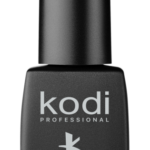Becoming an experienced player raising a newbie to grind them in any field often begins with an arduous yet rewarding journey of learning and improvement. This process, frequently referred to as “grinding,” involves persistent and dedicated effort aimed at mastering new skills and achieving higher levels of proficiency. Raising a newbie to grind effectively is about providing the right guidance, resources, and motivation to help them progress.
Understanding the Basics of raising a newbie to grind them
1. Foundation Knowledge:
When someone new enters any domain, the first step is to build a strong foundational knowledge. This involves understanding the key concepts, terminologies, and basic principles that underpin the field. For example, in gaming, a newbie must learn about game mechanics, controls, and objectives. In a professional context, this might mean grasping industry-specific jargon and basic operational procedures.
2. Hands-On Practice:
The essence of grinding lies in practice. Encouraging a newbie to engage in as many practical activities as possible allows theoretical knowledge to be applied and tested. It’s through repetition and real-world application that skills are honed. For instance, a budding artist should consistently sketch, experiment with different techniques, and learn from each piece they create.
3. Seeking Mentorship:
Connecting with a mentor can vastly accelerate the learning process. A mentor provides insights derived from experience, helping the newbie navigate complexities and avoid common pitfalls. This relationship is beneficial across various disciplines, from academic pursuits to trades and hobbies.
Developing the Right Mindset raising a newbie to grind them
1. Embracing Patience and Persistence:
Grinding requires patience. The road to expertise is rarely swift or smooth, and setbacks are part of the journey. Encouraging raising a newbie to grind them to remain persistent even when progress seems slow is crucial. Celebrate small victories to maintain motivation and foster a growth mindset.
2. Cultivating Discipline:
Consistency and discipline are vital. Establishing a routine can make regular practice a habit rather than a chore. Scheduling dedicated time for skill development ensures continuous improvement. For example, setting aside an hour daily for language practice can lead to significant progress over a few months.
3. Adopting a Positive Attitude:
A positive outlook can transform the grinding experience from tiresome to enriching. Viewing challenges as opportunities to learn and improve builds resilience. Encouraging a beginner to reward themselves for efforts rather than outcomes can make the journey enjoyable.
Utilizing Resources and Tools
1. Educational Platforms:
Leveraging online courses, tutorials, and interactive platforms can greatly benefit newbies. Websites like Khan Academy, Coursera, or specialized forums offer structured learning paths and community support. These resources provide a wealth of knowledge that can be accessed at one’s own pace.
2. Feedback Mechanisms:
Constructive feedback is invaluable. Encouraging regular reviews of work, whether through peer assessments, self-evaluation, or mentor feedback, can highlight areas of improvement. For a musician, recording practice sessions and critiquing them can pinpoint specific techniques to work on.
3. Participating in Communities:
Joining communities, both online and offline, creates opportunities for collaborative learning and support. Being part of a group with shared interests can motivate newbies to keep grinding and offer a sense of belonging. Active participation in forums, workshops, or clubs related to the interest area can also lead to networking opportunities.
Setting Goals and Tracking Progress
1. Establishing Clear Objectives:
Setting specific, measurable goals helps in maintaining focus and direction. These objectives can range from short-term targets, like mastering a particular skill, to long-term aspirations, such as achieving a certification. Clear goals provide a roadmap and milestones to celebrate along the journey.
2. Tracking Achievements:
Maintaining a record of progress can be motivating and insightful. Whether through a journal, digital tracker, or progress log, documenting achievements helps in visualizing growth over time. This practice also aids in identifying patterns and strategies that work best for the individual.
3. Adjusting Goals as Needed:
Flexibility is key. As the newbie grows and learns more about their strengths and preferences, it’s essential to reassess and adjust goals. This adaptability ensures that objectives remain challenging yet attainable, keeping the grind aligned with their evolving capabilities and interests.
Balancing Grinding with Rest
1. Understanding Burnout:
Persistent effort without adequate rest can lead to burnout, which is counterproductive. Recognizing signs of mental and physical exhaustion is crucial. Encouraging regular breaks and time off helps to recharge and return to grinding with renewed energy.
2. Incorporating Leisure Activities:
Balancing focused effort with recreational activities promotes well-being. Leisure activities, whether reading, engaging in a favorite hobby, or socializing, provide a necessary counterbalance to the grind, contributing to overall productivity and happiness.
3. Prioritizing Health:
Ensuring a healthy lifestyle with proper nutrition, exercise, and sleep supports sustained effort and learning capability. A well-rounded approach that considers health as a priority creates a robust foundation for effective grinding.
Celebrating Progress and Achievements
1. Recognizing Milestones:
Acknowledging progress, no matter how small, reinforces a sense of accomplishment and encourages continued effort. Celebrating milestones, whether it’s completing a difficult project, achieving a personal best, or receiving positive feedback, motivates and builds confidence.
2. Reflecting on the Journey:
Encouraging regular reflection allows the newbie to appreciate how far they have come. Reflecting on challenges overcome and the skills developed can be empowering and provide perspective on future goals. This practice fosters gratitude and continuous improvement.
3. Sharing Success:
Sharing achievements with a supportive network can amplify the joy of success. Be it with friends, family, mentors, or community members, celebrating together creates a sense of camaraderie and encouragement for further endeavors.
YOU MAY ALSO LIKE;
Conclusion
Raising a newbie to grind effectively involves a blend of guiding principles, practical strategies, and a supportive environment. By focusing on foundational knowledge, developing the right mindset, utilizing resources, setting and adjusting goals, balancing effort with rest, and celebrating progress, the journey towards expertise can be both rewarding and sustainable. With dedication and the right support, anyone can transform from a novice to a proficient player in their chosen field.
Five Most Searched FAQs
1. How can I create an effective practice routine?
Consistency and discipline are key. Establishing a daily schedule and sticking to it turns practice into a habit, ensuring continuous improvement.
2. What online resources are best for beginners?
Websites like Khan Academy, Coursera, and specialized forums provide structured learning paths, tutorials, and supportive communities for all skill levels.
3. How do I stay motivated during tough times?
Maintaining a positive attitude and viewing challenges as opportunities to learn can transform the grinding experience from tiresome to enriching.
4. How can I measure my progress effectively?
Tracking achievements through journals, digital trackers, or progress logs helps you visualize growth, making it easier to identify effective strategies.
5. What should I do to prevent burnout?
Regular breaks and balancing focused effort with leisure activities help prevent burnout, ensuring you return to grinding with renewed energy.











